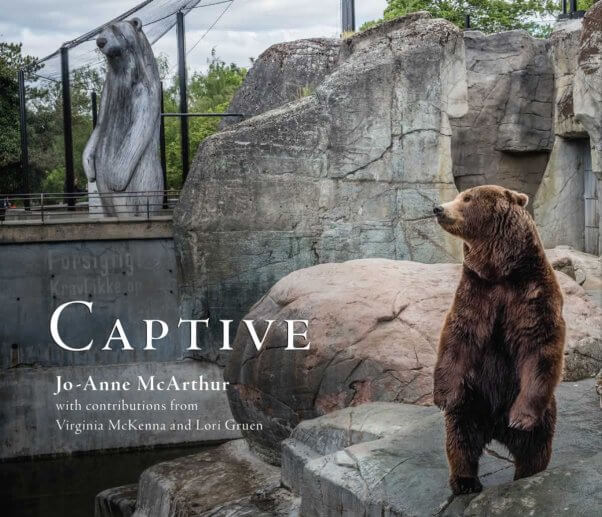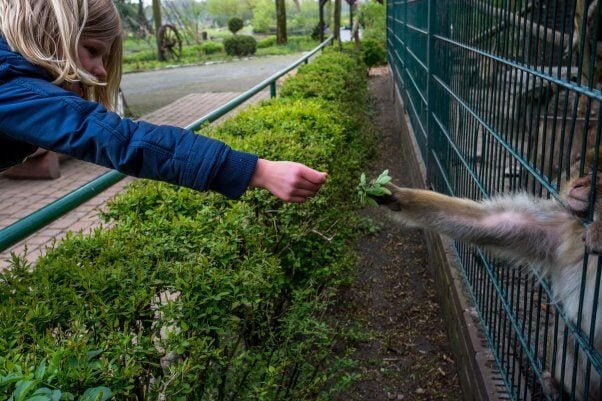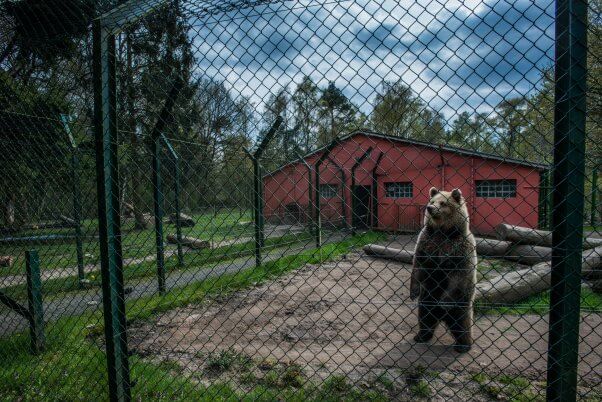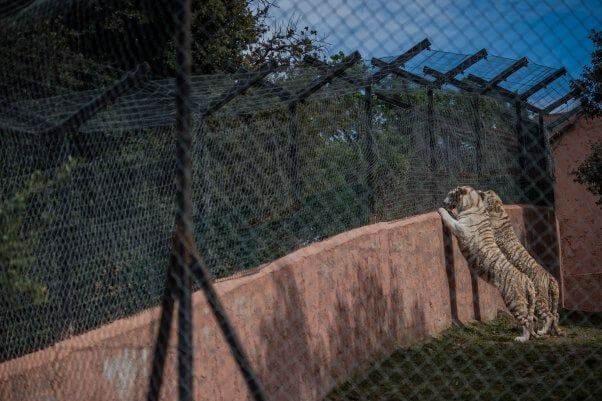Haunting and Unforgettable, ‘Captive’ Takes Zoos, and Us, to Task
Imprisoned at a zoo in Germany, a toque macaque reaches for the St. John’s wort—an antidepressant—growing outside the cage. A toucan, perched on bare wood beneath a skylight at a Croatian zoo, gazes at the open sky.

Bottlenose dolphins in Lithuania and the U.S. seem suspended as they float in antiseptic tanks. Standing on their hind legs, a polar bear in Canada and a brown bear in Germany stare despondently at the chain-link fencing of their cells.



Two white tigers peer longingly over the wall of their French prison. An orangutan in Denmark scratches a hole in the floor.
The photographs in Captive, the new book by award-winning photojournalist Jo-Anne McArthur (“We Animals“), are jarring and haunting—fear and hopelessness are etched into the faces of the countless animals she observed in zoos and aquariums around the world.
“We say that zoo visits are educational experiences,” McArthur writes. “That’s true, if what we mean by education is that the ideology that animals are here for our use and entertainment becomes further ingrained. True also, if what we mean by education is the reinforcement that objectification of the ‘other’ is not indecent.”
Captive, which includes insightful contributions from Virginia McKenna, cofounder of the Born Free Foundation, and Wesleyan University philosophy professor Lori Gruen, who also coordinates Wesleyan Animal Studies, teaches us otherwise.
By framing her photographs to include the bars and glass that deny animals the chance to be who they are, and by capturing human interactions with the captives—from taking selfies to total indifference—McArthur shows that zoos aren’t solely to blame for the plight of captive animals. Everyone who buys a ticket is complicit.
But McArthur, who has made thousands of photographs available to PETA and other animal rights organizations through her “We Animals” project, also writes that public sentiment about animals in captivity is finally changing. She points to the reaction generated by the documentary Blackfish and the outcry that followed the shooting of Harambe the gorilla at the Cincinnati Zoo.
“Captive is my contribution to that vital public discussion,” she writes.
Profound and unflinching, it’s a contribution not to be missed.
PETA is a participant in the Amazon Services LLC Associates Program, an affiliate advertising program designed to provide websites with a means to earn advertising fees by advertising and linking to Amazon.com.

